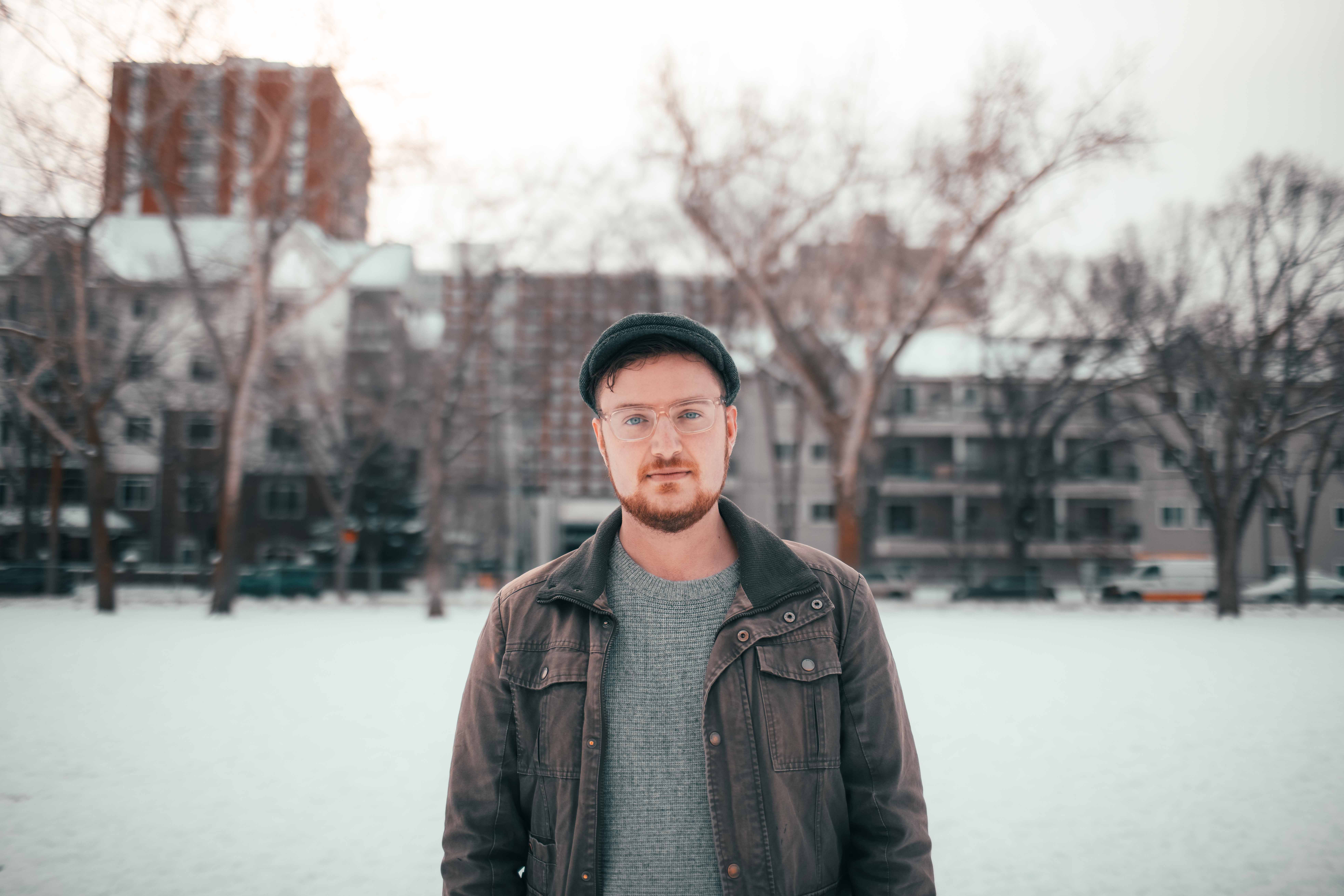MACE graduate working towards community-based social change
Jon Pullin - 08 June 2023

Landon Turlock
Growing up in rural Alberta, Landon Turlock, who uses the pronouns they/them, spent their high school summers volunteering as a camp counsellor. The recent master of arts in community engagement (MACE) graduate knew they wanted to help and support people.
After pursuing a degree in social work, they began facilitating dialogues with young people involved in the justice system, the people impacted by their actions, and their supports to work towards repairing harm. They later ran a small non-profit organization with the same focus. Through those experiences, they realized they wanted to focus on helping change the social conditions impacting the youth they were working with.
This led them to work for the City of Edmonton, where they work on a number of portfolios, all focused on community-led approaches to social issues, including addressing hate crimes and violent extremism, community safety and community development.
At their job, they saw how much community engagement and development were fundamental to making an impact. Wanting to develop their skills further, they applied to the MACE program, which they attended part time while working.
“I learned so much throughout the MACE program,” says Turlock. “Perhaps what I’m most grateful for is its focus on community. We were constantly encouraged to pursue learning and approaches to benefit the communities we were a part of and worked alongside.”
For their thesis research, Turlock collaborated with a group of organizations called Coalitions Creating Equity, where they spoke with community members who had reported hate crimes to understand their experiences and learn how organizations responded to them.
Turlock also completed a practicum where their team developed a guide and accompanying workshop on supporting victims of hate crimes. They’re currently working alongside community partners to publish articles, guides and educational videos to aid organizations, policymakers and researchers in supporting survivors of hate crimes.
“Both my thesis research and practicum directly built on my learnings about community-based research and engagement that I developed during the MACE program,” says Turlock. “They gave me the chance to work alongside community organizations to build understanding and help organizations provide better services to people who have survived hate crimes and incidents. It’s been incredibly rewarding.”
“My thesis advisor and the faculty were incredibly supportive of my learning goals. I received a lot of support and grace — especially from my thesis advisor Dr. Maria Mayan — which I’m grateful for.”
Turlock continues to work for the City of Edmonton, applying much of what they learned from the MACE program about community engagement and community-led development. They also received a ministerial appointment as a hate crimes community liaison from the Government of Alberta, where they work with a team engaging communities across the province.
This summer, they’re touring across Canada with their band.
“Ultimately, I hope to continue conducting community-based research, development, education, and advocacy in the pursuit of improved prevention and intervention of hate crimes and incidents. That may take me in the direction of a PhD or other opportunities over the next few years,” says Turlock. “There is a lot to do in the area of addressing hate crimes here and across Canada, and I plan to pursue that work in whatever ways best serve communities impacted by these issues.”
The master of arts in community engagement (MACE) is an interdisciplinary graduate degree program that prepares students for the study and practice of community engagement.